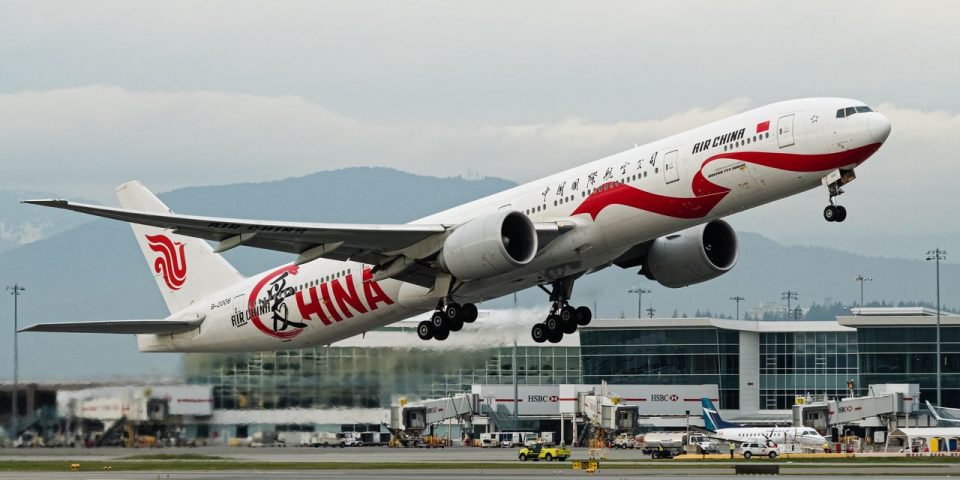Sign up: With one click, get this newsletter delivered to your inbox.
The spreading lockdown on transportation in and out of China is fragmenting Asia’s expedited freight services. A steep reduction in passenger airline services over the coronavirus outbreak has pulled out a swath of trans-Pacific capacity for high-value airfreight. The WSJ Logistics Report’s Jennifer Smith writes that logistics companies fear the constraints could turn into bottlenecks as China’s production resumes following the extended Lunar New Year break. Some freight airlines have also reined back their flights, largely because of reduced demand as China’s economy has hit the brakes, and those operators should be able to restore services as demand picks up. That could trigger a race for space, however, and higher rates because many passenger airlines say it could be the end of March before their planes return. Risk monitor Resilience360 says more than 25,000 flights connected to China have been canceled because of the coronavirus.
COMMODITIES
Asian markets are swimming in liquefied natural gas and that is sending producers under water financially. Prices for natural gas in Asia are hitting record laws, the WSJ’s Ryan Dezember reports, a troubling sign for U.S. energy companies that have relied on overseas shipments of shale gas to buoy the sagging domestic market. The drop is partly the result of fears that the coronavirus outbreak would stall demand in China, but the sector has already been facing pressures from mild winter weather in Asia alongside ample stockpiles and growing deliveries from the U.S. A broader problem for LNG suppliers is that power plants in Asia have been slower to switch from coal to gas than their U.S. and European peers. The growing glut has sent prices falling to the point where it is difficult to justify the cost of liquefying and shipping the fuel from the U.S.
E-COMMERCE
Efforts by traditional agricultural companies to stave off e-commerce incursions may be getting nasty. Canada is investigating some of the farming sector’s biggest suppliers over allegations the companies sought to block a tech startup that aims to shift North American agriculture purchasing online. The WSJ’s Jacob Bunge writes that the complaint targets heavyweights
Bayer AG
,
Corteva Inc.
and
BASF,
as well as farm-supply wholesalers like Cargill Inc. California-based startup Farmers Business Network Inc.’s complaint claims the companies stopped supplying the startup’s newly acquired Canadian business. Some supplier executives allegedly urged farmers not to do business with FBN. Several of the companies deny the allegations. The dispute comes as established agricultural operators and tech-sector entrants are vying to steer a technology revolution reshaping the farm sector. It shows how strains are developing as e-commerce startups push into business-to-business markets, disrupting longstanding procurement and distribution structures.
QUOTABLE
“
The variables continue to change by the hour.
”
Number of the Day
7.4%
Annual decline in North American intermodal shipments in the fourth quarter, according to the Intermodal Association of North America.
IN OTHER NEWS
U.S. officials reduced their expectations for economic growth in 2020 because of disruptions from the grounding of Boeing’s 737 MAX. (WSJ)
moved closer to profitability in the fourth quarter, and gross revenue at its Freight segment soared to $218 million. (WSJ)
Attorney General William Barr says the U.S. and its allies should consider countering Huawei Technologies by taking a financial interest in competitors
and
. (WSJ)
’ operating profit jumped 16% as booming North American business offset weakness in other markets. (WSJ)
cut profit expectations, saying China’s viral outbreak will mar sales. (WSJ)
sales in mainland China and Hong Kong have been hit by the coronavirus outbreak. (WSJ)
Kellogg projected a slim 1% to 2% increase in comparable sales for 2020. (WSJ)
says depressed poultry prices hurt earnings in its chicken segment. (WSJ)
Nokia’s fourth-quarter profit rose 11% to $901 million on flat sales growth. (WSJ)
will shut down a fourth blast furnace to combat a growing glut in the commodity. (Nikkei Asian Review)
plans to produce 100,000 vehicles a year starting in 2021 at a new plant in Mexico’s state of Guanajuato. (Reuters)
Chinese e-commerce marketplace
says it is taking extraordinary steps to maintain deliveries in the quarantined city of Wuhan. (DC Velocity)
Old Dominion Freight Lines’ fourth-quarter net profit fell 9.7% to $144 million as less-than-truckload revenue slipped. (Winston-Salem Journal)
U.S. diesel prices fell to the lowest level in two years. (Commercial Carrier Journal)
Chinese shipyards declared force majeure over delays in building new vessels because of the coronavirus fallout. (TradeWinds)
India’s government approved plans for a $9.2 billion deep-water container terminal in the western state of Maharashtra. (Seatrade Maritime)
Higher tanker rates drove
to a $75.6 million fourth-quarter net profit, the highest in its history. (Shipping Watch)
is building its first fulfillment center in Iowa outside Des Moines. (KCRG)
Unilever and Terra Drone Europe are exploring the use of drones to deliver ice cream in New York City. (FoodBev)
ABOUT US
Paul Page is editor of WSJ Logistics Report. Follow the WSJ Logistics Report team: @PaulPage, @jensmithWSJ and @CostasParis. Follow the WSJ Logistics Report on Twitter at @WSJLogistics.
Write to Paul Page at [email protected]
Copyright ©2019 Dow Jones & Company, Inc. All Rights Reserved. 87990cbe856818d5eddac44c7b1cdeb8


